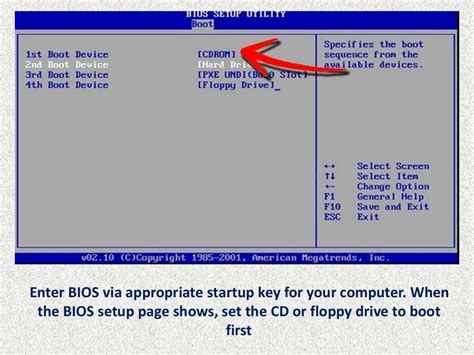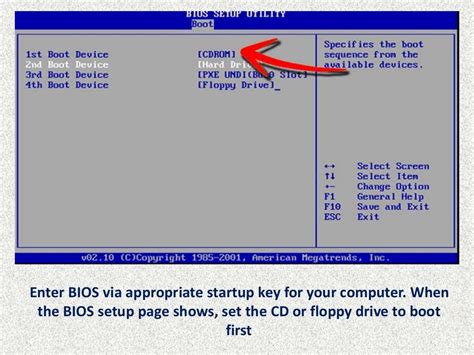boot sector replication definition in networking | boot sector virus prevention boot sector replication definition in networking A boot sector virus embeds itself in the boot sector of a disk (floppy, zip, or hard disk) . How To Tell Fake Louis Vuitton Belts. You can tell if a Louis Vuitton belt is real or fake by checking the text inside the belt. Fake belts have noticeably thicker inscriptions. 1. LV buckle. 1.1. Monogram belt. Authentic Louis Vuitton Belt: Sharp corners are characteristic of authentic Louis Vuitton belts.
0 · norton boot sector virus
1 · norton boot sector location
2 · boot sector virus prevention
The Iconic 25MM belt is a timeless accessory in line with the trend for slim belts, for everyday wear. This trendy version can be worn at the waist to underline the silhouette or over pants for a casual look. This reversible belt can be worn on the Monogram side or on the black leather side.
A boot sector virus embeds itself in the boot sector of a disk (floppy, zip, or hard disk) or a CD, and becomes memory resident when the computer is booted from the disk (if the disk is.

A boot sector virus embeds itself in the boot sector of a disk (floppy, zip, or hard disk) .© 2008-2024 ResearchGate GmbH. All rights reserved. Terms; Privacy; IP . Boot sector viruses are malicious programs that infect storage devices’ boot sectors or Master Boot Record (MBR). These viruses are particularly insidious because they load . A boot sector virus, also known as an MBR virus, DBR virus, or a boot infector, is a type of virus that explicitly targets and contaminates a specific physical segment containing .
A boot sector virus is a type of malware that infects the boot sector of a storage device, such as a hard drive or USB flash drive, which is the area that the computer accesses to load the .A boot sector virus is a malicious file that can damage the master boot record (MBR) on your hard drive, as well as the partition table. It can cause your computer to boot slowly or to fail to start .
A boot sector virus that actively protects its storage in the boot sector, hides itself from detection and actively intercepts scans attempting to detect its operation is part of a root . Bots rarely announce their presence with high scan rates that damage network infrastructure; instead, they infect networks in a way that escapes immediate notice. Advanced .
A boot sector virus is a malicious type of software that embeds itself within a computer’s boot sector or the Master Boot Record (MBR). It is engineered to spring into action the moment the computer powers on, often .
The term “boot sector virus” refers to a distinct sort of malware that infects the startup sectors of storage media like hard drives, floppy disks, or even USB drives. These threats have severe .A boot sector virus (BSV) is a computer virus that resides in the boot sector of a disk. Each time the disk is mounted, the boot sector is read and executed, causing the virus to be. A boot sector virus embeds itself in the boot sector of a disk (floppy, zip, or hard disk) or a CD, and becomes memory resident when the computer is booted from the disk (if the disk is.
Boot sector viruses are malicious programs that infect storage devices’ boot sectors or Master Boot Record (MBR). These viruses are particularly insidious because they load before the operating system, giving them fundamental control over the system. A boot sector virus, also known as an MBR virus, DBR virus, or a boot infector, is a type of virus that explicitly targets and contaminates a specific physical segment containing essential information of the computer required to properly run the operating system for start-ups and to operate initial functions.A boot sector virus is a type of malware that infects the boot sector of a storage device, such as a hard drive or USB flash drive, which is the area that the computer accesses to load the operating system.A boot sector virus is a malicious file that can damage the master boot record (MBR) on your hard drive, as well as the partition table. It can cause your computer to boot slowly or to fail to start at all. When this happens, your operating system may not load, or you might experience a black screen or a blue screen.
A boot sector virus that actively protects its storage in the boot sector, hides itself from detection and actively intercepts scans attempting to detect its operation is part of a root-kit. Boot Sector viruses have been around since Brain, the first MS-DOS virus created, and was easily scanned and removed. Share. Bots rarely announce their presence with high scan rates that damage network infrastructure; instead, they infect networks in a way that escapes immediate notice. Advanced botnets may take advantage of common internet of things (IOT) devices such as home electronics or appliances to increase automated attacks. A boot sector virus is a malicious type of software that embeds itself within a computer’s boot sector or the Master Boot Record (MBR). It is engineered to spring into action the moment the computer powers on, often bypassing any pre-installed security measures.The term “boot sector virus” refers to a distinct sort of malware that infects the startup sectors of storage media like hard drives, floppy disks, or even USB drives. These threats have severe implications on system operations since they load into memory each time the system starts and stays in effect until the system is shut down.
A boot sector virus (BSV) is a computer virus that resides in the boot sector of a disk. Each time the disk is mounted, the boot sector is read and executed, causing the virus to be. A boot sector virus embeds itself in the boot sector of a disk (floppy, zip, or hard disk) or a CD, and becomes memory resident when the computer is booted from the disk (if the disk is.
Boot sector viruses are malicious programs that infect storage devices’ boot sectors or Master Boot Record (MBR). These viruses are particularly insidious because they load before the operating system, giving them fundamental control over the system. A boot sector virus, also known as an MBR virus, DBR virus, or a boot infector, is a type of virus that explicitly targets and contaminates a specific physical segment containing essential information of the computer required to properly run the operating system for start-ups and to operate initial functions.A boot sector virus is a type of malware that infects the boot sector of a storage device, such as a hard drive or USB flash drive, which is the area that the computer accesses to load the operating system.A boot sector virus is a malicious file that can damage the master boot record (MBR) on your hard drive, as well as the partition table. It can cause your computer to boot slowly or to fail to start at all. When this happens, your operating system may not load, or you might experience a black screen or a blue screen.

A boot sector virus that actively protects its storage in the boot sector, hides itself from detection and actively intercepts scans attempting to detect its operation is part of a root-kit. Boot Sector viruses have been around since Brain, the first MS-DOS virus created, and was easily scanned and removed. Share.
norton boot sector virus
Bots rarely announce their presence with high scan rates that damage network infrastructure; instead, they infect networks in a way that escapes immediate notice. Advanced botnets may take advantage of common internet of things (IOT) devices such as home electronics or appliances to increase automated attacks. A boot sector virus is a malicious type of software that embeds itself within a computer’s boot sector or the Master Boot Record (MBR). It is engineered to spring into action the moment the computer powers on, often bypassing any pre-installed security measures.
The term “boot sector virus” refers to a distinct sort of malware that infects the startup sectors of storage media like hard drives, floppy disks, or even USB drives. These threats have severe implications on system operations since they load into memory each time the system starts and stays in effect until the system is shut down.

buy fake lv bags
Discover Louis Vuitton LV Iconic 20mm Reversible Belt: Featured in Nicolas Ghesquière’s Cruise 2024 show, the LV Iconic 20mm Reversible Belt updates the classic Monogram signature with a brighter, more contemporary color palette. Monogram Dune canvas is paired with sumptuous semi-aged natural cowhide on the reverse side, accented by a .
boot sector replication definition in networking|boot sector virus prevention



























